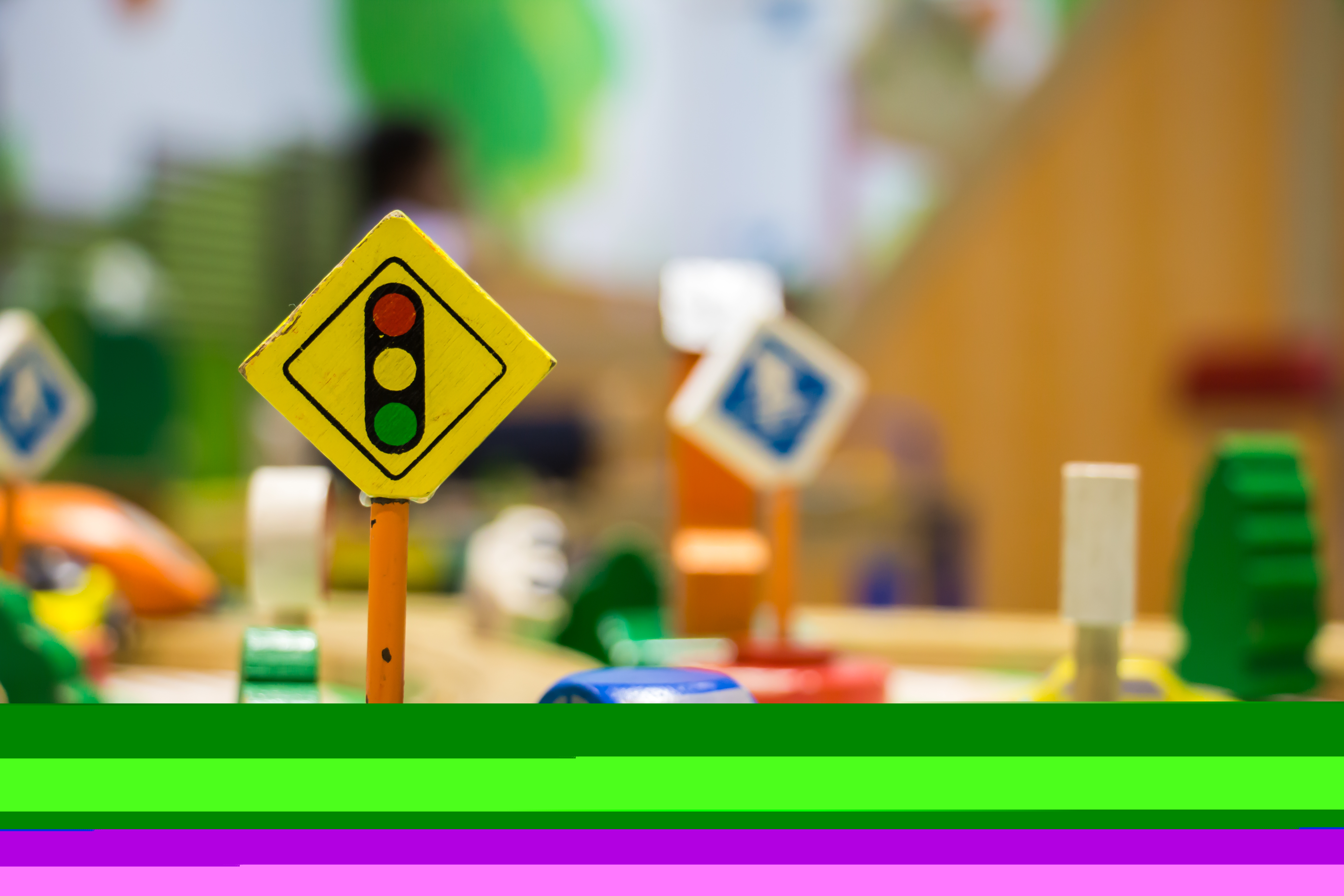Reading Improvement Worksheets for Ages 3-5
5 filtered results
-
From - To
Discover our engaging Reading Improvement Worksheets designed for children ages 3-5! These thoughtfully crafted worksheets aim to enhance early literacy skills through fun and interactive activities. Perfect for preschool and kindergarten settings, they focus on phonics, word recognition, and storytelling, ensuring a solid foundation for your child's reading journey. With vibrant illustrations and age-appropriate tasks, these worksheets captivate young learners and foster a love for reading. Support your child's growth with resources tailored to their developmental stage, promoting confidence and comprehension in reading. Explore our collection today and empower your little ones to become enthusiastic readers!
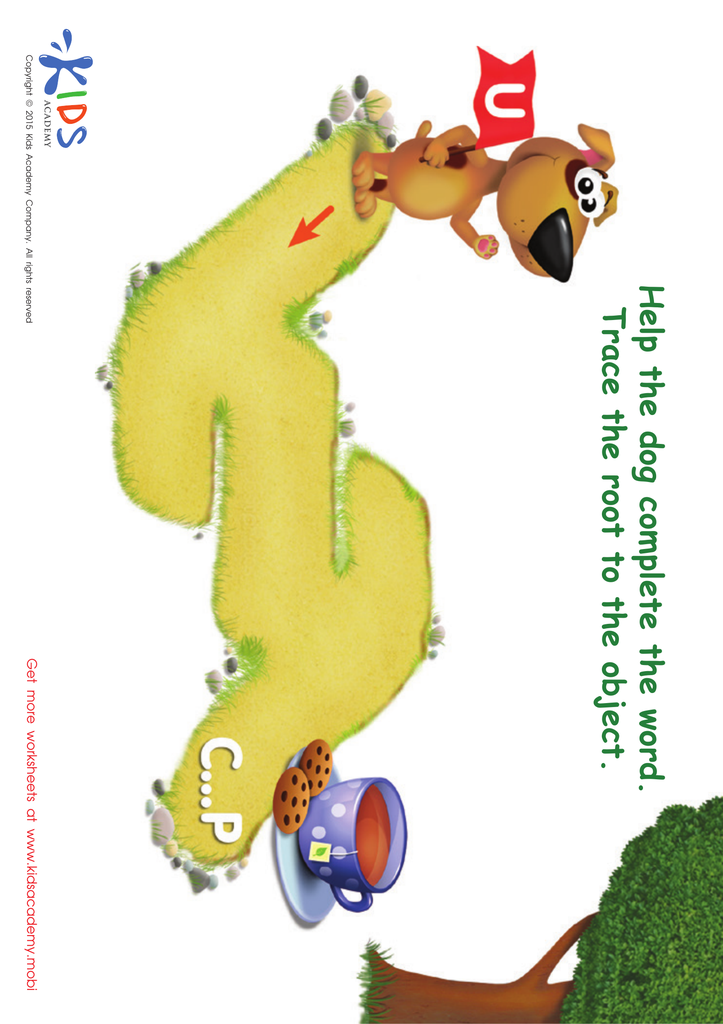

Short Vowel Sound U Worksheet Worksheet
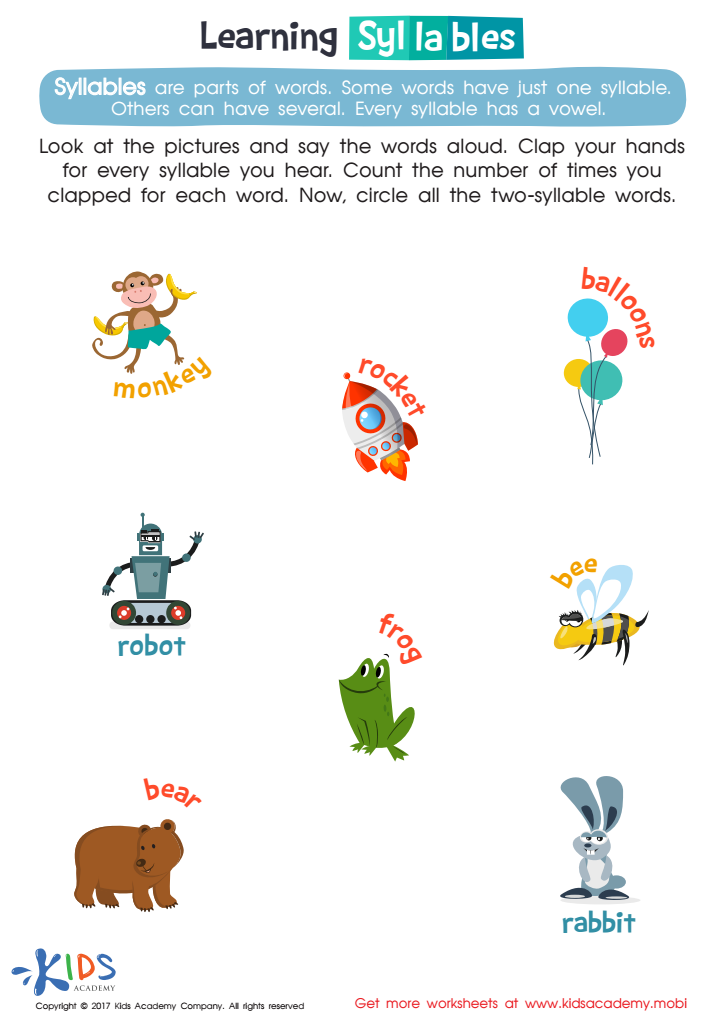

Learning Syllables Word Structure Worksheet
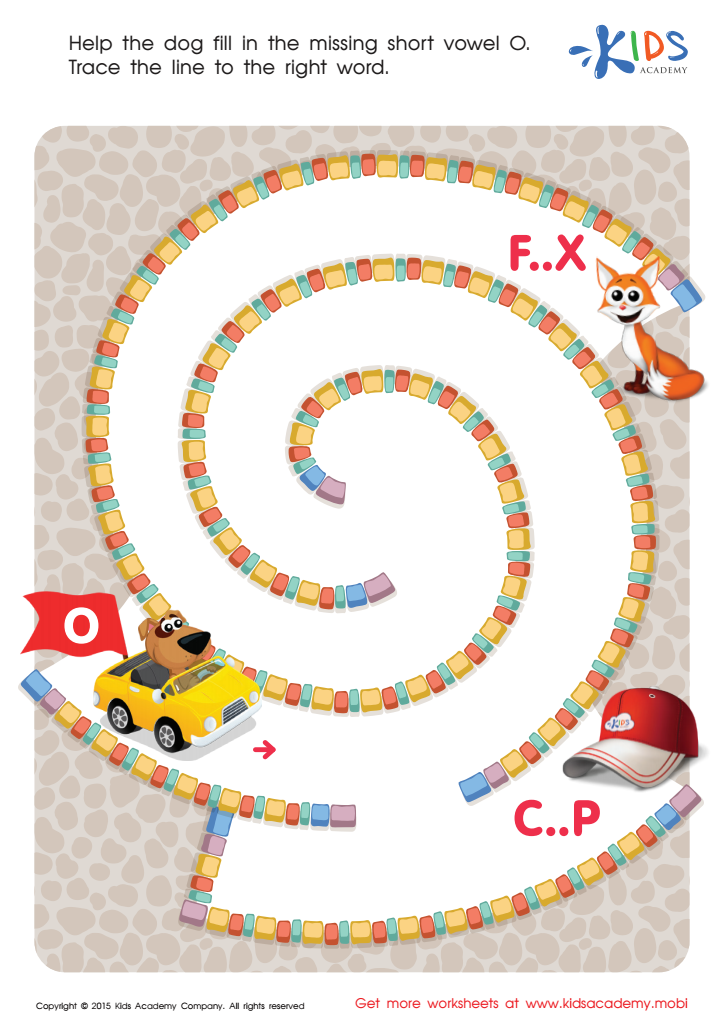

Short Vowel Sound O Worksheet
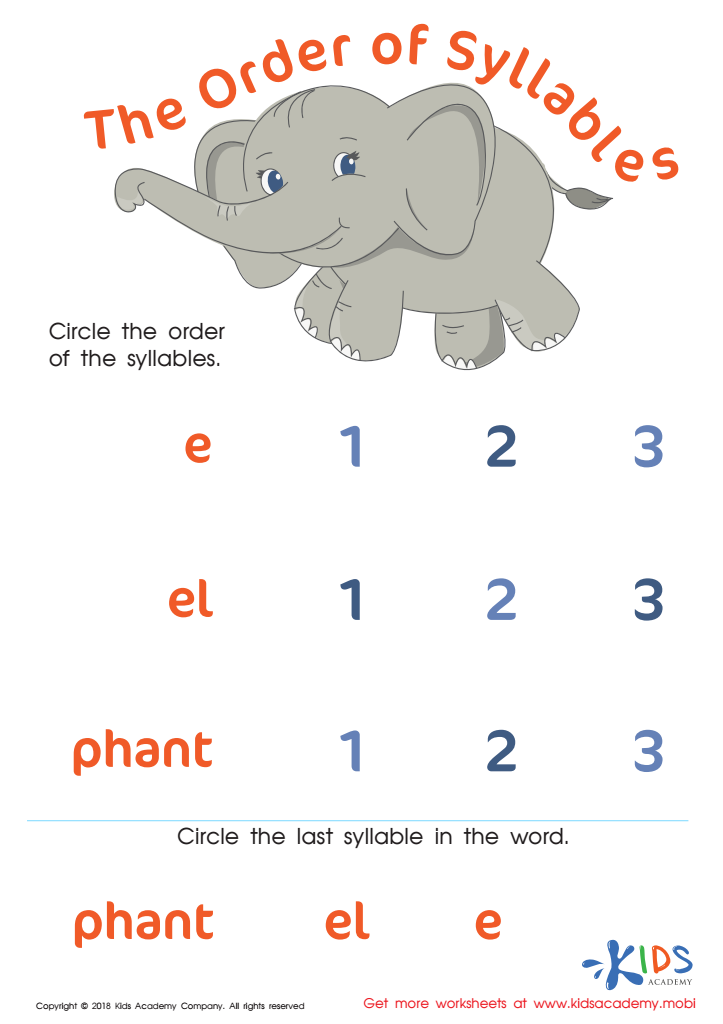

The Order of Syllables Worksheet
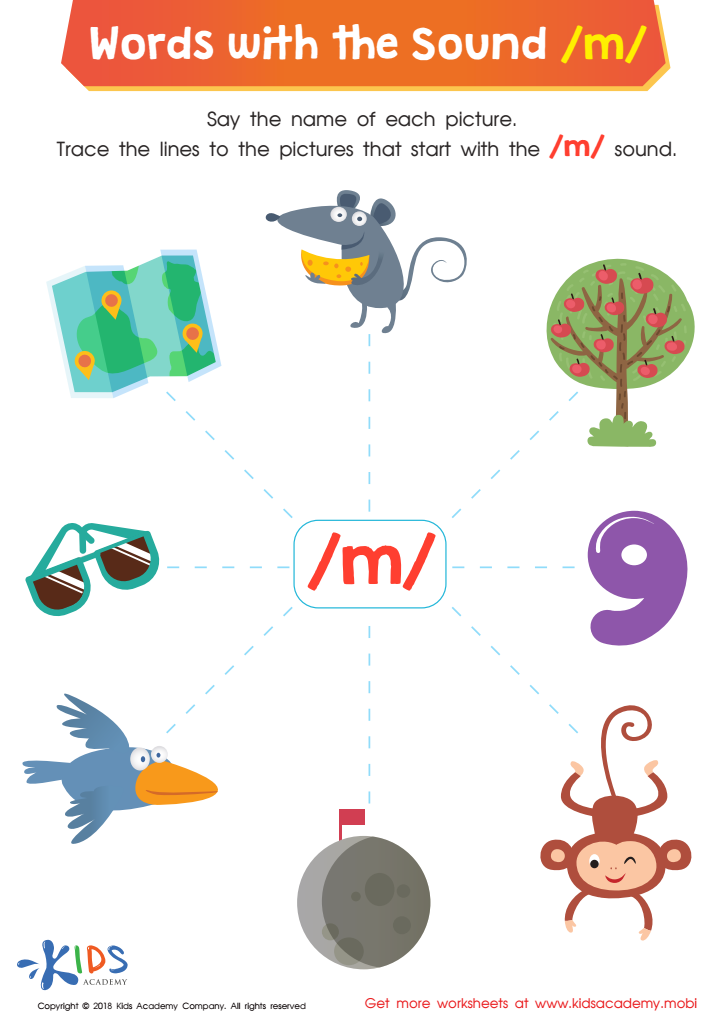

Words with Sound M Reading Worksheet
Reading improvement for children ages 3-5 is crucial for several reasons. During these formative years, brain development is at its peak, making early literacy experiences essential for cognitive growth. Engaging children in reading early fosters language skills, enhances vocabulary, and stimulates critical thinking, providing a solid foundation for future academic success.
By cultivating a strong reading habit, parents and teachers help children develop a love for learning and an appreciation for stories and language. This early exposure to books not only promotes communication skills but also nurtures emotional intelligence as children relate to characters and situations within stories.
Furthermore, declining literacy rates and increased screen time emphasize the importance of active participation in reading. Educators who prioritize reading development can create engaging literacy-rich environments that stimulate curiosity and critical analysis, preparing children for school readiness and lifelong learning.
Starting reading improvement early can also identify learning challenges before formal schooling begins. By working collaboratively, parents and teachers can better support a child’s individual needs, ensuring a nurturing approach to literacy development. In summary, fostering reading in young children sets the stage for their future educational journeys, promoting success both inside and outside the classroom.

 Assign to My Students
Assign to My Students




.jpg)

